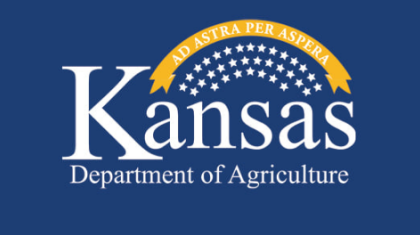Kansas Residents: Send Your Comments on Proposed Regulatory Changes for Kansas Pet Animal Act
The Kansas Department of Agriculture (KDA) is proposing amendments to the Kansas Pet Animal Act (KPAA) regulations, which will impact licensed animal enterprises across the state. KDA claims that these changes "aim to enhance animal welfare standards and improve regulatory compliance."
The deadline to comment is June 1, 2025.

The points below include The Cavalry Group's interpretation of the proposed KDA regulatory changes. You can read KDA's original proposed changes by clicking HERE.
New Veterinary Protocol Mandates (K.A.R. 9-18-21)
This regulation forces breeders to follow extensive, extra veterinary protocols even when animals have already proven to be healthy, well-groomed, and receiving proper care. It requires individualized wellness testing schedules, dental care, grooming routines, and breeding fitness exams, all to be developed and documented annually by a veterinarian.
These duplicative requirements increase costs and paperwork without improving animal welfare. Most professional breeders already maintain excellent health standards. This rule tightens the regulatory noose and will surely drive small, responsible breeders out of business.
Transfer of Sick or Exposed Animals (K.A.R. 9-18-23)
This amendment expands the ability to transfer or adopt out animals with infectious diseases under limited conditions. While it appears to offer "flexibility," it also adds new layers of compliance and reporting obligations.
This rule could be used to retroactively punish breeders for unknowingly transferring asymptomatic animals. It’s another example of vague language that opens the door to punitive enforcement—even when there’s no evidence of wrongdoing.
Mandated Use of 2020 AVMA Euthanasia Guidelines (K.A.R. 9-18-31)
This regulation forces all licensees to adopt the latest AVMA euthanasia guidelines, which were developed for veterinary clinical settings—not for the practical realities of animal husbandry.
Imposing these guidelines on commercial breeders creates unrealistic and costly compliance expectations. Breeders already use humane methods; this is unnecessary regulation being used to penalize legal activity.
Expanded Notification Requirements (K.A.R. 9-18-32)
This new regulation requires breeders to report any planned changes to capacity, address, facility status, or contact information. It also mandates that breeders disclose any behavioral or medical issues to buyers before rehoming an animal—even for minor or resolved issues.
This is blatant micromanagement. These reporting demands create a constant threat of technical noncompliance. The rule allows bureaucrats to interfere in legitimate business decisions and penalize breeders for subjective or unclear violations.
New Licensing Application Standards (K.A.R. 9-18-33)
This rule outlines what constitutes a "complete" license or renewal application, but does so without clear, objective criteria.
This gives the Department unchecked authority to delay, deny, or revoke licenses for administrative or minor errors. It’s a bureaucratic trap that allows for selective enforcement and harassment of targeted breeders.
How Will this Impact Your Animal Enterprise?
Why These Rule Changes Matter to Kansas Breeders Regulated by Kansas Dept. of Agriculture:
- It is The Cavalry Group's opinion and observation through some of our Kansas members that many Kansas breeders feel they are being regulated out of existence—not for animal welfare concerns, but due to ideological targeting from animal rights activists and sympathetic regulators. If left unchecked:
- These rules could be weaponized by unelected bureaucrats.
- Compliance costs could rise due to excessive micromanagement.
- Breeders may be forced out of business through subjective enforcement, not actual animal care violations.
Please Submit Your Comment By June 1, 2025
We have included some boiler plate comment suggestions in the letter that Kansas dog breeders, pet professionals, and animal enterprise stakeholders can submit to the Kansas Department of Agriculture to oppose the proposed KPAA regulations. These are written to be direct, respectful, and focused on constitutional rights, regulatory overreach, and the risk of unintended consequences. **However, we ask that you use these comments as a guide and please make them your own.
Submit your comments by clicking the tab below and follow the prompts.
